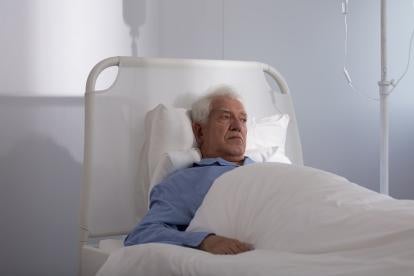As the Life Care Center of Kirkland in the Seattle area has emerged as the first nursing home in the country to report residents infected with the Coronavirus, senior living and health facilities are bracing for the impact of the virus. Facilities around the country are dusting off emergency plans as they face the possibilities of quarantine and staffing shortages.
Effects of Coronavirus
Seniors, individuals with chronic medical conditions, and their families need to take special precautions. Seniors and individuals with serious health conditions are more vulnerable to infection as well as to the effects of the Coronavirus. (Chinese reports indicate the fatality rate among the elderly may be between 8% and 15%.) In addition, these populations may be more likely to be exposed due to their increased contact with health care providers and facilities. Moreover, the home care workers that many seniors and vulnerable adults rely on may also face a greater risk of exposure to the disease if it becomes widespread.
Therefore families should have back-up plans in place in case the caregiver for their loved one becomes ill or is unable to provide care. This may involve contacting agencies now before there is a need. If there is a community outbreak, you may not be able to care for your loved one yourself. People with family members in facilities may want to be aware of other facility options in case of an outbreak. Of course, the decision to remove a loved one from a facility should not be taken lightly.
If a senior or vulnerable adult in your family relies on community services or assistance, it is important to have up-to-date contact information for friends, neighbors, health professionals, and community agencies. It is important to consider which community organizations might be able to provide services and supplies for your loved one.
CDC Recommendations
In addition, seniors and individuals with disabilities should vigilantly follow the recommendations from the Center for Disease Control and ensure that caregivers also comply with these simple hygiene rules. Wash your hands often with soap and water for at least 20 seconds, especially after blowing your nose, coughing, sneezing, or going to the bathroom, and before eating or preparing food. Avoid touching your eyes, nose, and mouth with unwashed hands. Cover your cough or sneeze with a tissue, then throw the tissue in the garbage. Clean frequently touched surfaces and objects daily (e.g., tables, countertops, light switches, doorknobs, and cabinet handles) using regular household detergent and water. Stay home when sick, except as needed to access medical care.
The CDC recommends that you choose a room in your home that can be used to separate sick household members from those who are healthy and identify a separate bathroom for the sick person to use, if possible. The agency has also put out recommendations on caring for a loved one with the virus at home. It is also suggested that you keep a couple of week’s supply of food, water, and your regular medical supplies, equipment, and medications on hand.
Lastly, if seniors and vulnerable adults do not have powers of attorney and health care proxy documents in place, now is an excellent time to do so. There is certainly no need to panic about the coronavirus. However, there is good reason to prepare for it, just in case.




 i
i


